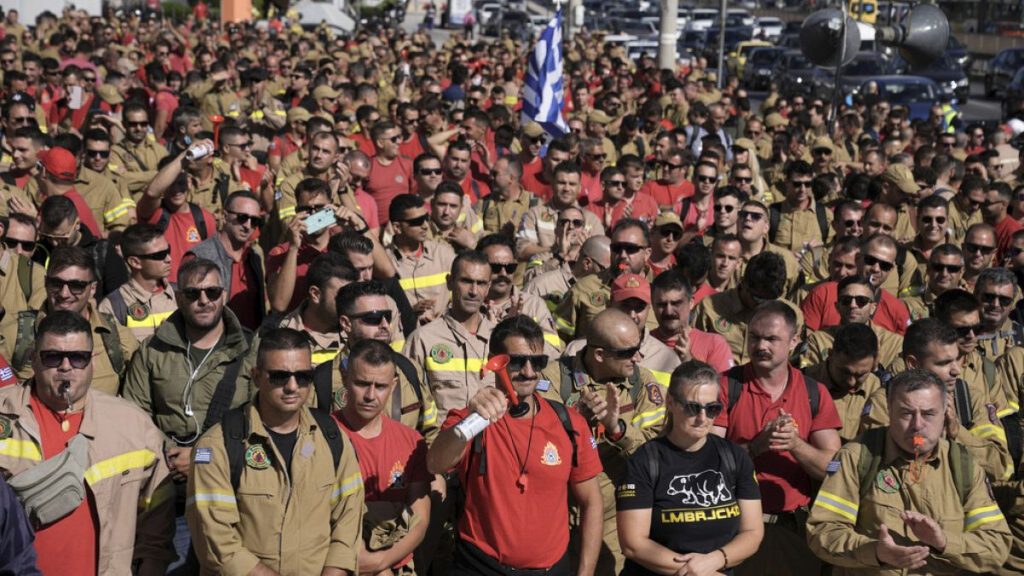Worsening wildfires exacerbated by climate change are causing significant challenges for countries in Europe, including Greece. In Greece, seasonal firefighters protested for permanent positions as their contracts expired following a brutal wildfire season. The firefighters, representing about 2,500 individuals, have been left unemployed until the next wildfire season begins in May. Union representatives argue that the risk of wildfires in Greece has extended beyond the traditional May-October period due to climate change, necessitating a year-round firefighting capability. This year, the wildfire season in Greece started earlier than usual in April and extended well into autumn, with more than 4,500 wildfires reported. The damage this year is estimated at 410 sq kilometers, including a major fire in August near Athens.
The Greek government has not responded to the firefighters’ demand for year-round employment, despite efforts to improve firefighting capabilities in the country. Greece experienced record-breaking heat in June and July this year, further exacerbating the wildfire risk. New legislation has been introduced to address the impact of wildfires, such as enforcing the removal of biomass from forest areas. Technological solutions, such as drones and temperature sensors, are also being considered to tackle wildfires. Other countries in Europe, including Portugal, Italy, and Croatia, are also struggling to combat wildfires as global warming makes them more frequent and fast-spreading.
The 2023 wildfire season in Europe was one of the worst this century, according to a European Commission report. About 504,000 hectares of land, equivalent to an area twice the size of Luxembourg, were scorched by wildfires last year. The report highlights the need for countries to enhance their firefighting capabilities and implement measures to mitigate the impact of wildfires. In Greece, seasonal firefighters with years of experience are facing challenges in securing permanent positions due to age restrictions, leaving them unemployed until the next wildfire season. The ongoing wildfires in Greece and across Europe underscore the urgent need for coordinated efforts to address climate change and its impact on the environment.
Climate change is driving the increase in wildfires in Greece and other European countries, posing significant challenges for firefighting efforts. The prolonged wildfire season in Greece, which started in April and extended into autumn, has resulted in significant damage and strained resources. Seasonal firefighters in Greece are facing uncertainty as their contracts expire, highlighting the need for year-round firefighting capabilities in the face of worsening wildfires. Efforts to improve firefighting capabilities and implement measures to mitigate the impact of wildfires are ongoing in Greece and other countries across Europe.
The record-breaking heat in Greece in June and July this year has further heightened the wildfire risk, necessitating stronger measures to combat wildfires. New legislation has been introduced to address the impact of wildfires, such as the removal of biomass from forest areas. Technological solutions, including drones and temperature sensors, are being considered to enhance firefighting efforts. The 2023 wildfire season in Europe was particularly severe, with a significant amount of land scorched by wildfires, underscoring the need for countries to strengthen their firefighting capabilities and address the impact of climate change on wildfires. The challenges faced by seasonal firefighters in Greece are emblematic of the broader issues surrounding wildfires in Europe and the urgent need for coordinated action to address climate change and its impact on the environment.













